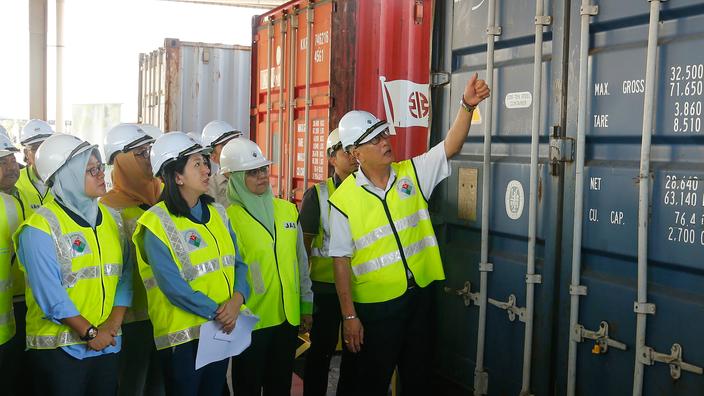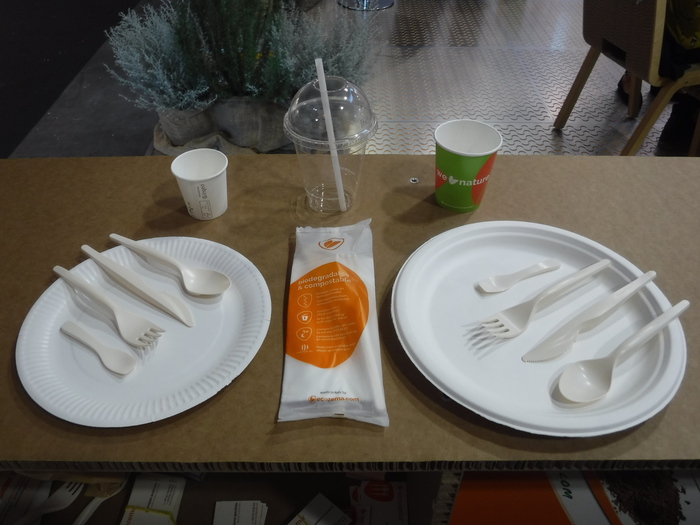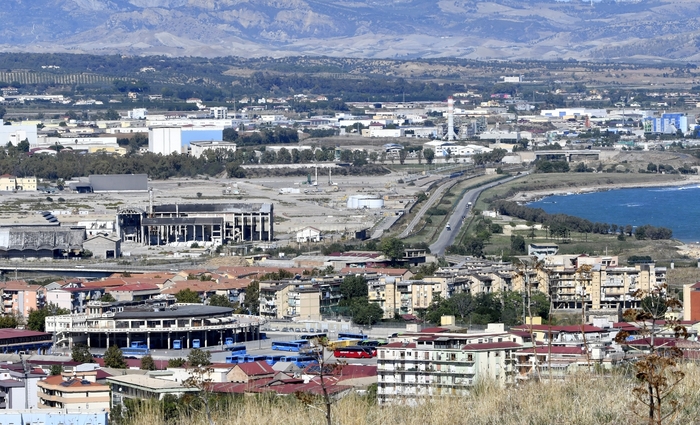Planet 1, plastic 0. As of January 1, 2021, the European Commission prohibits EU member states from sending their so-called “
hazardous
”
plastic waste to
non-OECD countries (Development Cooperation Organization economic), i.e. to less developed countries.
Read also: China no longer wants to be the garbage of the rest of the world
Waste that “
presents risks to both the population and the environment and must therefore be the subject of special precautions
” is
considered “
dangerous
”
, explains Ademe, the Ecological Transition Agency.
They include plastic waste that is not recyclable or "
difficult to recycle
", specifies the public body.
In addition to the fact that they are now confined to the OECD, this hazardous waste must imperatively be the subject of a prior agreement between the exporter and the recipient, validated by the authorities of the two States.
This is called a “prior notification of consent procedure”.
Concretely,
"the exporter and the recipient must put together a file in which will be explained the process of sending the waste, the standards of the two States in terms of waste treatment, the economic objective of the operation ... This file must, before the start of the transfer, be validated by the authorities,
”explains Evguenia Dereviankine, an environmental lawyer who advises manufacturers in the sector.
A process that already existed for certain plastic waste, but whose list has grown:
“in this regulation, many plastics registered by the European Union on the green list (non-hazardous waste, known as“ easily recyclable ”) have migrated to the orange list (waste "difficult to recycle"), "
continues Evguenia Dereviankine.
The European Union provides for an exception for plastic waste on the green list, which can continue to be exported anywhere in the world without requiring prior authorization from the competent authorities.
1.5 million tonnes of waste exported in 2019
The European Union exported around 1.5 million tonnes of plastic waste in 2019, mainly to Turkey and Asian countries.
“
Most of the recycling factories are located in Asia, as close as possible to the factories manufacturing plastic objects that consume the recycled material
,” explains Evguenia Dereviankine.
The problem lies in the composition of some of these plastics: those which do not contain only one resin, but several, and which therefore require a preliminary over-sorting before entering the production process.
"
However, a sorting process, if it is not sufficiently supervised, can be a source of material loss
", points out the lawyer.
One of the objectives of the new European regulations is therefore to limit intermediaries in sorting waste, to prevent non-recyclable substances from ending up in nature.
"
It is desirable that sorting operations are all carried out at the source, thus limiting the number of intermediate steps and therefore the risk that some of the plastics escape monitoring and end up in nature,
" explains the lawyer.
Read also: Nearly 230,000 tonnes of plastic thrown into the Mediterranean every year
Another objective: to prevent waste from being sent to States which do not have the appropriate structures for the treatment of waste and its recycling.
Because since China decided to stop importing waste from other nations as of January 1, 2021, rich countries have repatriated to other Asian countries, such as Thailand, Indonesia or Malaysia. , not able to recycle so much new waste.
The
a priori
and
a posteriori
controls
of the processing structures of the recipient State are supposed to limit fraud.
Potential delays in waste treatment
Just as Brexit risks causing border congestion, new EU waste regulations are expected to slow trade.
“
There may be delays, because the flow of plastic that goes through the notification circuit is numerous.
The authorities risk being inundated with requests.
The recycling chains will certainly be slowed down pending validation of the files by the authorities,
”anticipates Evguenia Dereviankine.
Read also: Carbios, a French nugget in plastic waste recycling
The Zero Waste association, which aims to reduce the amount of waste, welcomes the initiative of the European Union, "
which goes in the direction of reducing plastic production
", explains Juliette Franquet, director of the association. Because if the elimination of plastic becomes more difficult, it can dissuade manufacturers from using this material. This progress must nevertheless be accompanied by support for alternative sectors, such as those of bulk and deposit, she believes. "
The bans are necessary, but we must also provide for alternative measures: provide funding for these new sectors, be exemplary on the side of local communities ... that's what we are fighting for
."




/cloudfront-eu-central-1.images.arcpublishing.com/prisa/Z6ZRII4DCQHR3STPMYZMCKBRI4.jpg)




